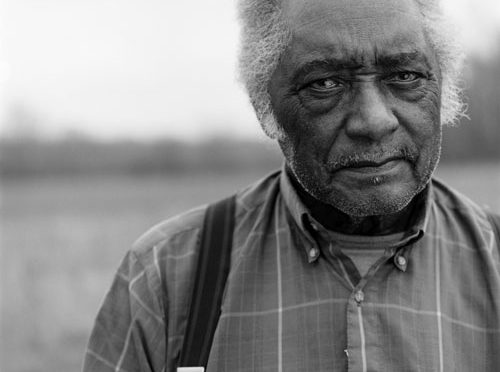In the 20th century, a wonderful thing happened to American poetry. The recordings of musical troubadours, a singer of vernacular poetry, became very important to most of the population. Not even Robert Lowell has known the poetic esteem of Muddy Waters, of Bob Dylan or of Bill Withers. They were the product of years of social dissent and political organization that had created a new ethos in this country: a love for poetic and popular song.
Some of these musicians were educated at the University level. Some were not. The USA, singer of countless ballads, had produced a Guillaume IX d’Aquitaine. Millions, not hundreds, not thousands, sang along. In his book Writing Degree Zero, Roland Barthes writes that modern poems are a matter of “verbal luck.” The “verbal luck” had worked. Three such musicians are undeniable greats: Charles Bradley, Charles Caldwell and RL Burnside.

Charles Bradley is a singer who has had the chance of officially beginning his career as a matured man. It has allowed him to sing from the bottom of his heart and with verve. He does not sing us a traditional ‘composition”; instead he chooses for his songs to be incredible moments strung together as a formidable experience. He sings about a multitude of things: He sings us nationalism superbly in the song “Good to be back home” and love in at most beautiful vernacular in “Crazy for your love.” In five words, he is a superb musician.

Charles Caldwell writes songs that burn. He is a man at a fireplace: with few words he attempts a flame, adding more wood to the fire (with his guitar) without saying more than the minimum “and along / come another man ..” His album Remember Me is magnificence.


RL Burnside will change your mind about what to dance along to. His songs are introductions to an art of life of humor, contemplations, but also of feeling. His lyrics are amazing. His songs like “Fireman ring the bell” and “I be troubled” have the ability to erase and leads towards other avenues and in doing so ‘stomping one’s blues.”
They are known as blues singers or folk singers but those are commercial categories. What they are in American society are troubadours. What makes these singers of poetry troubadours is the fact that, like European troubadours, they propose language and conceptions through their songs, though they are not court poets. Music has dethroned religion in the US for how it is (i.e. tones) that people speak. Music has made vernacular not only accepted but also revered. Like European troubadours, American singers are those who propose definitions of emotions like “love.” Love introduced in Europe in the middle ages by Troubadours who also rebelled against static living.
Before the rise of the Bourgeoisie into power through revolutions like the American Revolution, monarchy and Aristocracy decided on great poetry. Whether if it was classical poetry, the Alexandrin for example, for example, the poems of Joachim de Bellay or the English poetry of Chaucer and of Hoccleve, they all had to produced, promoted, and approved by a system. With the Bourgeoisie rise in power came, through revolution, new liberties.
American poetry was born as the poetry of this modern world and never had to submit itself to the court system, though it has to academia. Academia, however, in the end, has not decided for the people. Unlike academics, Americans have never longed read court poets. They have rebelled against court society. They would also agree with Barthes’s stating that a poem is a “possible adventure”. It’s some sort of intellectual entertainment. Most would disagree that poetry functions in American society like the Iliad did in Greek society. The most well known “poetry” in American life that is both known and revered is poetry put to song.
Sovereignty has chosen poetry. Charles Bradley, Charles Caldwell, RL Burnside are American culture’s great European troubadour poets of the Middle Ages, singing in such a thing as American language. They have been loved by many Americans and have shaped resting, sitting, or limping American souls.
Headline photo: RL Burnside – Photo by David Barry


